
A university student who is progressively losing her sight and hearing has completed the Three Peaks Challenge with just three minutes left on the clock as part of her quest to become the first deafblind person to climb Mount Everest.
Karolina Pakenaite, 28, from Merseyside, scaled the three highest peaks in England, Scotland and Wales last week in 23 hours, 56 minutes and 47 seconds, after running the last 40 minutes with her guide and falling many times.
Karolina, a PhD student in computer science at the University of Bath, was diagnosed with a rare, degenerative condition known as Usher Syndrome at the age of 19 – and told that her vision and hearing would fade over time.
With the clock ticking, she decided to embark on a series of adventures to make as many visual memories as possible before she loses both senses completely, with the ultimate goal of becoming the first deafblind person to summit Mount Everest in April 2026.
The Three Peaks was one of the warm-up challenges Karolina is undertaking, having already ticked off the London Marathon earlier this year, and she is now preparing to face the Aconcagua summit in November, the highest peak in the Western Hemisphere at 22,831 feet (6,959 metres).
Karolina’s sight and hearing have already been affected by her condition which means she experiences tunnel vision and night blindness, and relies on sighted guides or her guide dog, a golden retriever called Bosley, to get around.
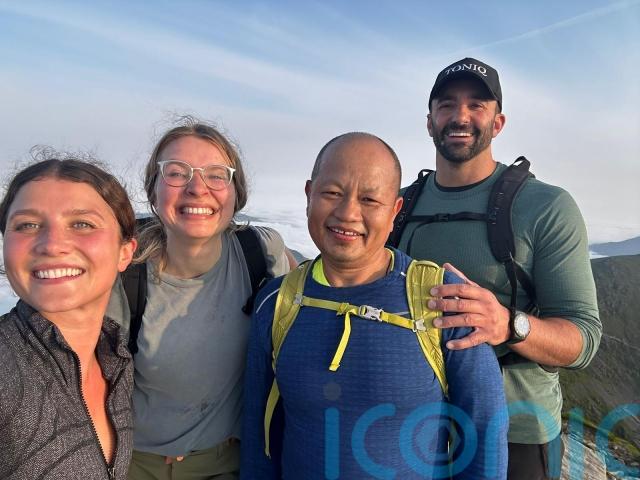
“I thought the biggest challenge was going to be navigating the rugged terrain in the dark with my night blindness,” Karolina told PA Real Life.
“I will have to climb both day and night on Everest, so completing the 24-hour challenge was not just about testing my endurance but also about understanding the type of support I will need and how it might change at different times of the day.
“So for me, it was all about building trust and getting the hang of communicating my needs to my new sighted guides while diving straight into the challenge and racing against the clock.
“Even though I knew they had my back and I had asked for their help, it was still tough to let go and rely on them fully.”
The three peak challenge involves climbing Ben Nevis, Scafell Pike and Snowdon – the highest mountains in Scotland, England and Wales, respectively – within a 24-hour timeframe.
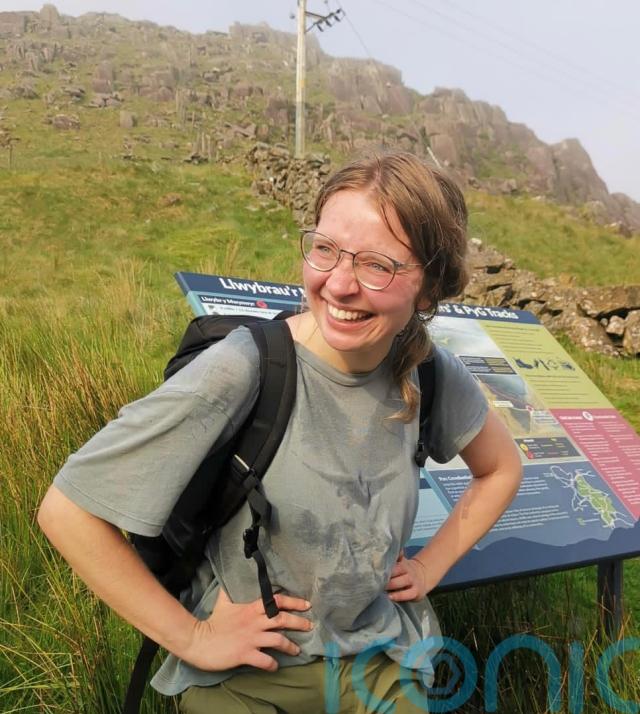
Karolina set off from the Glen Nevis Visitor Centre on May 31 at 8am with a team, including three sighted guides, Sammar Gurung, Buddhi Gurung, both from Nepal, her coach, Arron Collins-Thomas, plus four of his gym members, as well as film-makers who are documenting her Everest journey.
Climbing Scotland’s highest mountain, 1,345 metres (4,413 ft), went relatively smoothly but the hardest was still to come.
“We embraced the first peak in great spirits and were feeling very excited about the challenge ahead,” she said.
Scafell Pike, England’s highest peak at 978 metres (3,209 ft), was a tougher challenge as the sun was setting and Karolina’s night blindness began to affect her.
“Having night blindness on top of tunnel vision and deafness, I knew Scafell Pike was going to be challenging as dusk was settling in and we were an hour behind schedule,” she said.
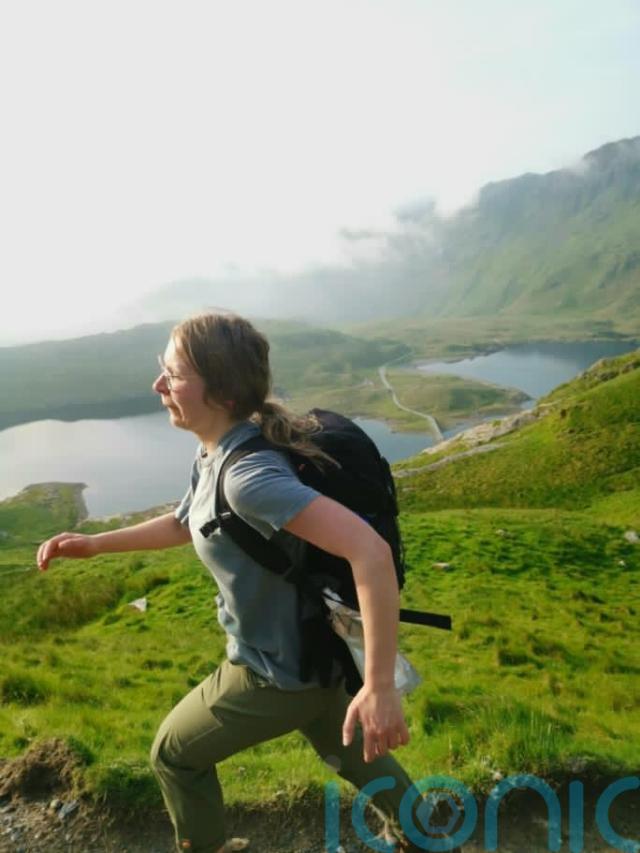
“Two of my sighted guides were shining a path for me with their head torches and other groups on route commented on how serious and focused we all looked.
“But we made it.”
With no time to spare, Karolina and her team travelled to Mount Snowdon, Wales’ tallest summit at 1,085 m (3,560 ft), and began their ascent in the early hours of June 1.
“We began just before sunrise but were still behind schedule,” she said.
Karolina was feeling “nervous” after having a “traumatic incident” on Snowdon ten years ago, when she went climbing with some friends and got lost in bad weather.
“However after breaking through the clouds 30 minutes into the climb, the spectacular view reassured me,” she said.
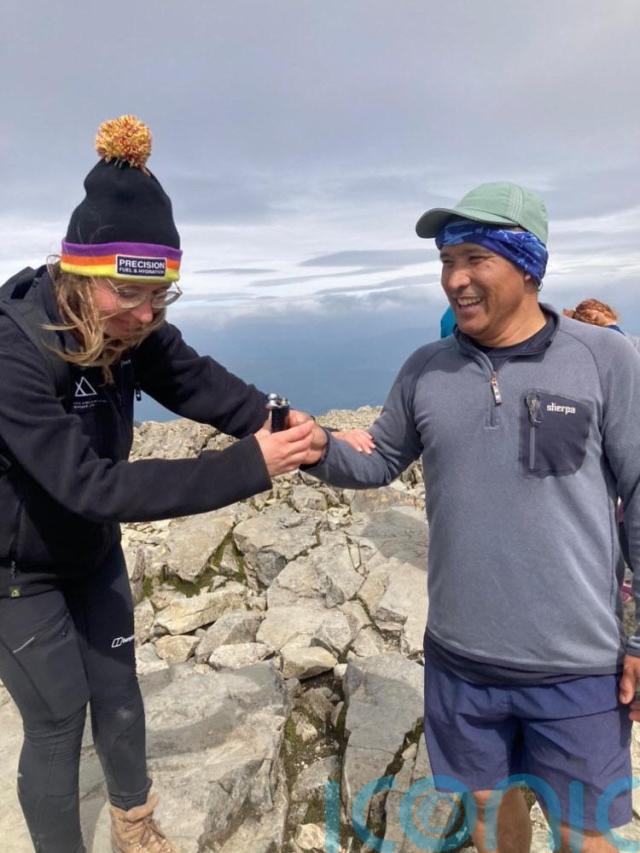
As Karolina and her team approached the summit, it suddenly dawned on them that time was running out and they only had minutes to spare when they finally reached the bottom of Mount Snowdon.
“Racing against the clock to complete the challenge within 24 hours, we quickly snapped a team photo at the summit without pausing to appreciate the views, and then we ran,” she said.
“I got a bit stubborn and decided to run solo for the last 40 minutes, sticking close and shadowing our Snowdon guide with my tunnel vision.
“But I did fall many times in those 40 minutes, so going solo wasn’t the brightest idea.
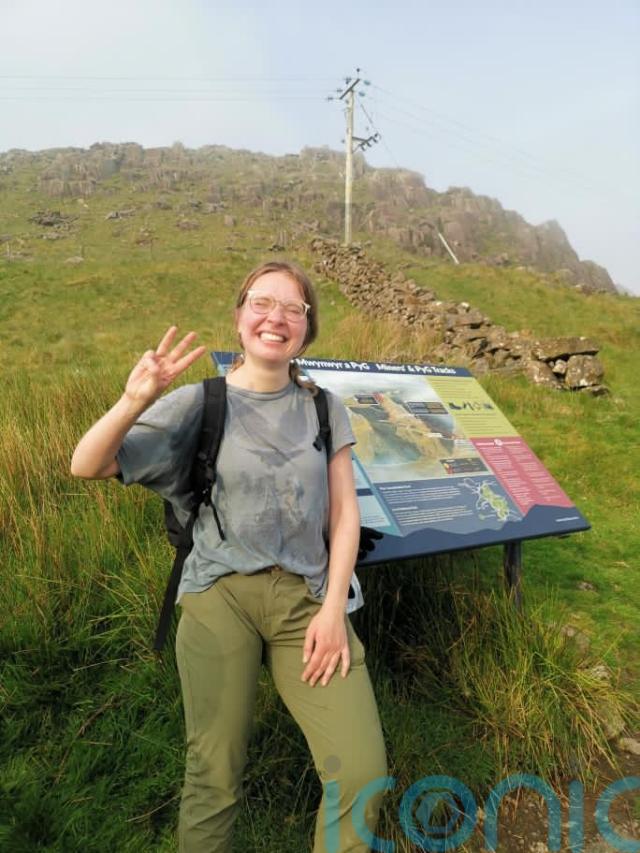
“Looking back, though, I’m touched by how patient everyone was with me.”
Karolina completed the Three Peaks challenge in 23 hours, 56 minutes and 47 seconds and said she felt “fit and strong” and has recovered quickly.
“The adrenaline rush was incredible and felt so freeing and empowering,” she said.
“I completely fell in love with trail running, something I never thought possible with my sight condition.”
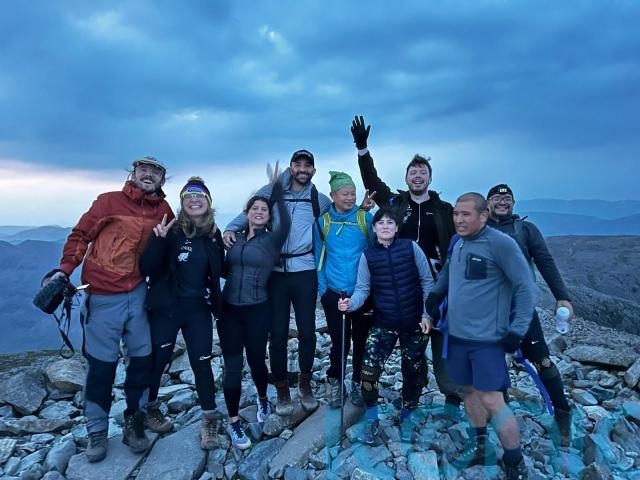
In preparation for the challenge, Karolina has been following a rigorous fitness routine, hitting the gym four or five times a week, running and swimming, as well as honing her skills on an indoor climbing wall.
Her next challenge will be the Aconcagua summit in Western Argentina in November 2024, South America’s highest peak.
Karolina said: “The three peaks provided a glimpse into the challenges of climbing with little to no sleep which I expect to face because of the altitude which makes rest difficult.”
She will then attempt the Denali summit, North America’s 6,190m (20,310ft) equivalent in June 2025, as well as Mount Manaslu in September, the world’s eighth-highest mountain at 8,163m (26,781ft), part of the Nepalese Himalayas.
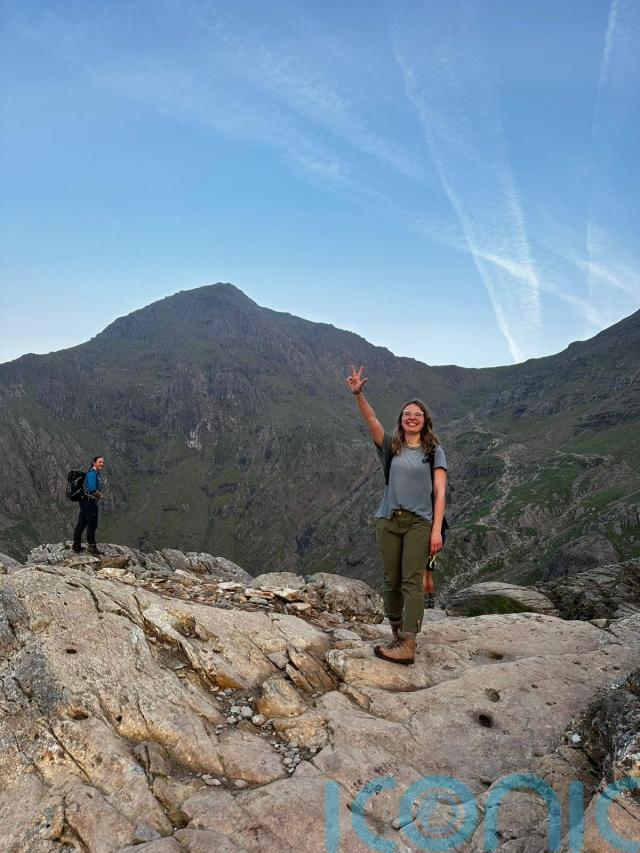
Provided all goes well, she will take on Everest in April 2026.
According to the Himalayan database as of January 2024, 6,664 people have summited the world’s highest peak, but it is believed Karolina would be the first deafblind person to follow in their footsteps.
Karolina’s three peak challenge was organised by gym TONIQ and sponsored by Millimetres 2 Mountains and Sporting Family Change charities.
To help fund her next adventures, Karolina has launched a fundraiser for £100,000 to help pay for training, equipment and her assistance team.
“Maybe we could have done it a lot faster,” she said.
“But three minutes sounds a lot more interesting than if we had a lot longer to spare.”
Subscribe or register today to discover more from DonegalLive.ie
Buy the e-paper of the Donegal Democrat, Donegal People's Press, Donegal Post and Inish Times here for instant access to Donegal's premier news titles.
Keep up with the latest news from Donegal with our daily newsletter featuring the most important stories of the day delivered to your inbox every evening at 5pm.